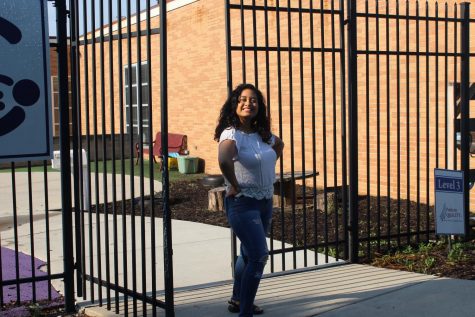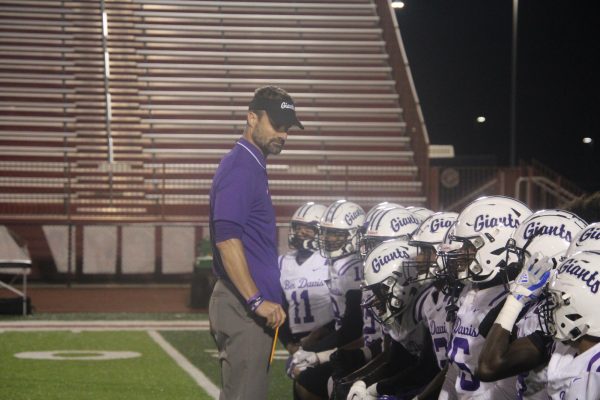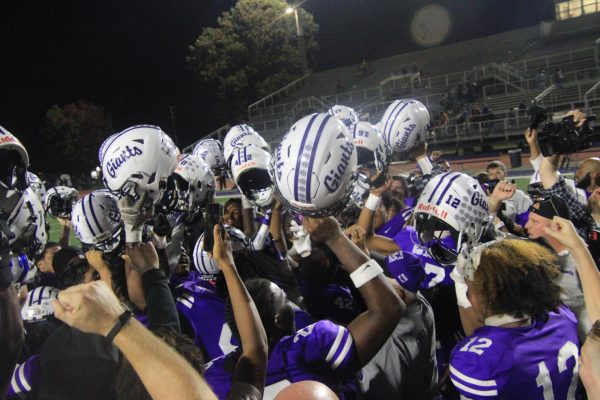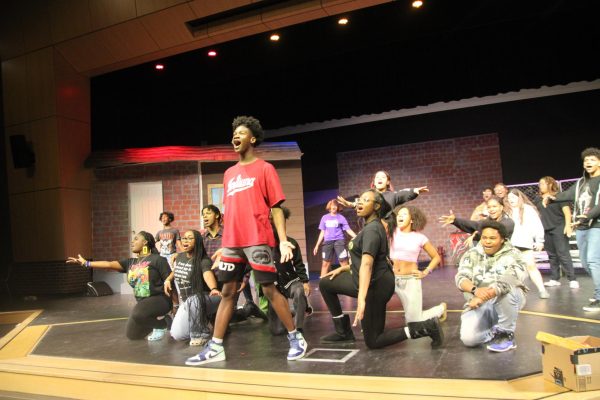Here to stay
Growing up as DACA recipient has its challenges
February 15, 2018
Being an immigrant is difficult when you live in a country you’ve only known all your life. You feel as if this is your home when in reality, many people tell you over and over again that it’s not. Growing up, I lost memories of what Mexico was like. Since I was only there for a couple of months, America started becoming my home.
I always felt blessed to have come to the United States when I was just seven months old since the transition wasn’t as hard on me as it was on my family. Learning English wasn’t as hard because I had preschool teachers who understood my family’s situation and took their time to help me learn English by reading and writing and even watching cartoons. I was learning the same things at the same pace as every other kid my age, so I never felt different.
My parents, on the other hand, had to learn a whole new language and become adjusted to the different currency, social norms, etc. My sister had to go to a new school, which she had no idea what it would be like.
My mother’s side of the family was already in Indiana and helped us out when it came to adjusting. They helped connect my parents to jobs who hired immigrants and showed us locations where we would feel the tiniest bit like we were still in Mexico.
Our status wasn’t much of a problem for me as a kid than it was for my parents.
Money was always a problem because they weren’t many jobs who would hire immigrants with good enough pay. They both had to work many jobs in order to make ends meet. The constant fear of deportation was one my parents had.
They were always keeping an eye on me and my sister in order for us to stay out of trouble so our family could be safe and still in the United States.
Although the United States had many opportunities, we didn’t receive as many benefits as most people would think. My family didn’t have insurance since we couldn’t afford it so we had to count on natural remedies and medicine from our local Walmart to feel better rather than going to the hospital. My sister was not able to go to college straight after high school since she had no idea about the whole college process and at the time, there wasn’t much opportunity for those who didn’t have documentation as there is now.
Many would like to argue that with all the time we spent in the United States, why didn’t we file for permanent residency? The expenses for the process were out of our budget and while it being a long process, it would take time away from my parents to go to their jobs and still have money to afford the rest of the process plus our basic necessities like bills and food.
When DACA came out in 2012, it was a miracle to my mother’s ears to know that I and my sister would have a way to stay safe from deportation and not go through the many struggles she and my dad did.
When I first received my DACA card, I was ecstatic. It provided me with an opportunity to become employed and feel safe for the next two years. I thought all my problems involving my citizenship were gone. I always felt that I was as American as anyone else in this country. With DACA, it was more of a validation that I was. But it did not solve all my problems.
My status started hitting me with problems when it came to planning for college. I was clueless about how it would alter my application process.
In Indiana, the House Bill 1402 prohibits in-state tuition for those with DACA. Going out of state for school had never crossed my mind beforehand, but I didn’t want to be in a grand amount of debt.
I found it ridiculous that after living in the United States for 16 years they made me hurdle obstacles just to apply in order to ensure how fluent I was in the language (by taking English test rather than seeing my transcript) and having to apply as an international student when I’ve only been in the United States for most of my life. Not only did this hold me back, the recent policy changes about DACA only added to the anxiety I was already having.
I decided to make light out of the situation and invest my time to conduct research on what certain states and colleges had to offer for those in my situation instead of just giving up on my goals.
Anytime I had to spare between school and work I would use by reading articles about laws and restrictions individual states had for DACA members. One thing I learned from my experience is that not many were well educated on the DACA program. Even my counselors couldn’t provide much information to ease my concerns, although they did lead me to Latin-based organizations located near me.
Not only did I take all the advice the organizations had to offer, I also called university admissions offices from all over the country for more information on my application process. This information included aspects such as different scholarship opportunities if I would be considered an international student, scholarship opportunities, and if the college would be a fit for me
The new government policies on DACA was only a minor set back. The real challenge was trying to stay positive and really give my all in order to ensure the future I want. The support from my teachers, peers, and family was a big boost for me. The big goal that kept my head up was the knowledge that completing my secondary education would bring pride to my family, and letting my parents witness that the life they gave up in Mexico was not wasted as I have made them with past accomplishments.
Even with the ups and downs of living in the U.S., my family ended up making it work. My sister was able to go to technical school and become a dental assistant. She is currently married and is now in the process of becoming a prementant citizen. My mother was able to save enough money and slowly begin her own business. Despite all the obstacles, my family is able to support me while I attend Ball State in a couple of months.
By combating the stereotypes that many have of immigrants, we were able to prove that we benefit this country just like any other American.












